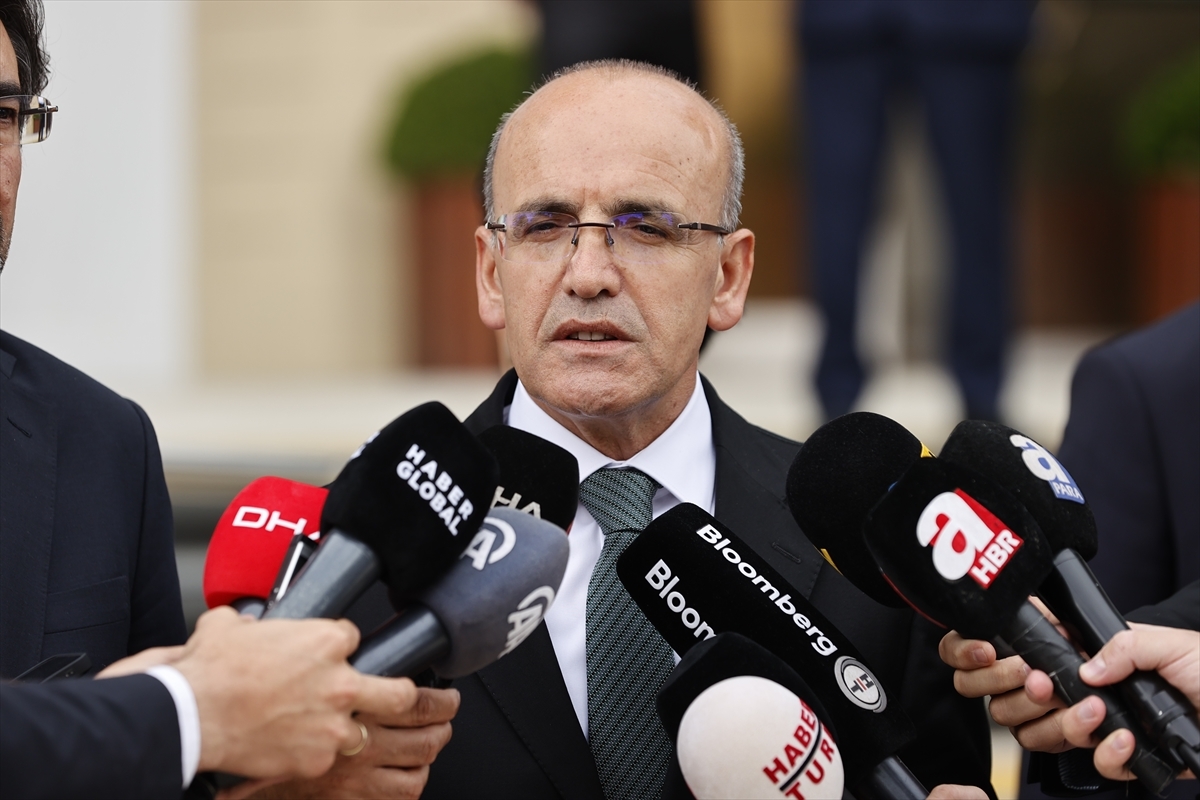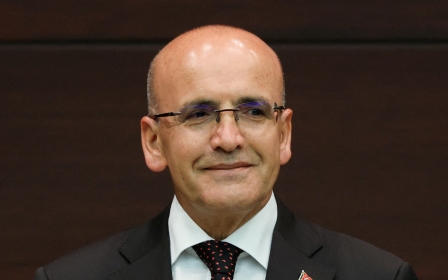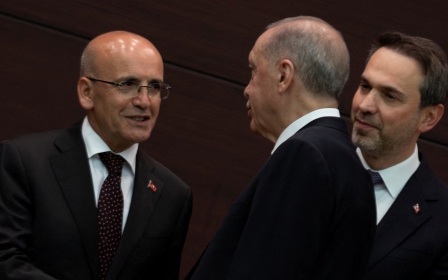Turkey's Simsek to visit UAE in bid for investment amid economic overhaul

Turkey's Vice President Cevdet Yilmaz and Finance Minister Mehmet Simsek will visit the United Arab Emirates on Thursday to seek investment for Turkish markets, following the overhaul in Ankara's economic team, two sources familiar with the trip told Middle East Eye.
Simsek will meet the president of the UAE and Abu Dhabi Crown Prince Mohammed bin Zayed Al Nahyan, and Vice President Mansour bin Zayed Al Nahyan on Thursday, according to a source familiar with the details of the visit.
Simsek, a former Wall Street banker and a darling of the markets, is seen as a credible persona who aims to shift Turkey's current unorthodox financial and monetary policies to internationally accepted economic models.
Yilmaz, who is tasked with overseeing the coordination of the Turkish economy, is also seen as a credible technocrat that can deliver results.
Erdogan subscribes to an unorthodox economic theory that high interest rates cause inflation. Previously, he has pressured the Central Bank to cut borrowing costs and increase credit access despite conventional wisdom saying otherwise.
New MEE newsletter: Jerusalem Dispatch
Sign up to get the latest insights and analysis on Israel-Palestine, alongside Turkey Unpacked and other MEE newsletters
The lira has shed more than 90 percent of its value over the past decade as the country has been hit by soaring inflation, which has also driven away foreign investors.
More than $27bn of the Central Bank's foreign currency reserves have been burned through since the end of 2022, as the government sought to prop up its currency and finance its enormous account deficit.
Ankara needs foreign investors, including hedge funds and foreign direct investment, to prop up its foreign reserves, which are depleted and below zero. In recent years, Simsek has travelled back and forth between Ankara, London and Abu Dhabi as a private senior portfolio manager.
The UAE is already filling the void left by western creditors. Emirati banks have increased loans to their Turkish counterparts since the Turkish and UAE governments, long rivals, reached a rapprochement in November 2021.
Bloomberg earlier this week reported that two of the Gulf state's biggest lenders, Abu Dhabi Commercial Bank and Emirates NBD, arranged 61 percent of all syndicated loans, which involve multiple lenders and one borrower, to Turkish banks in the first half of the year, compared with about 15 percent during the same period a year earlier.
UAE President Mohammed bin Zayed has established close relations with his Turkish counterpart Recep Tayyip Erdogan over the last two years. The UAE has subsequently promised to invest $10bn in Turkish energy, petrochemicals, technology, transportation, infrastructure, health, financial services, food and agriculture industries.
In March, the UAE and Turkey signed a free trade deal in Abu Dhabi, which aims to increase trade between the two countries to $40bn in the next five years.
Turkey also signed a $5bn currency swap deal with the UAE in 2022 in a bid to shore up Turkish Central Bank reserves.
Middle East Eye delivers independent and unrivalled coverage and analysis of the Middle East, North Africa and beyond. To learn more about republishing this content and the associated fees, please fill out this form. More about MEE can be found here.




